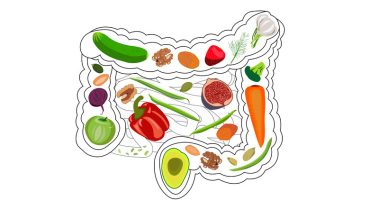In recent years, the issue of food waste has garnered significant attention as a major environmental and social concern. In the United States, it is estimated that up to 40% of the food produced goes to waste, translating into approximately 133 billion pounds and $161 billion worth of food annually. This staggering figure not only represents a massive loss of resources but also has profound implications for public health and the environment. Reducing food waste is not only an ethical and economic imperative but also a crucial step towards better health and a sustainable future.
The Health Implications of Food Waste
Food waste has a direct and indirect impact on health in several ways:
Nutritional Loss:
Wasted Nutrients: When food is wasted, so are the essential nutrients it contains. This loss contributes to dietary deficiencies, particularly in low-income populations where access to nutritious food may already be limited.
Food Security: Reducing food waste can help address food insecurity by making more food available to those in need. Ensuring that everyone has access to a balanced diet is a critical component of public health.
Environmental Impact:
Climate Change: Food waste significantly contributes to greenhouse gas emissions. Decomposing food in landfills releases methane, a potent greenhouse gas that exacerbates climate change. Climate change, in turn, affects health by increasing the incidence of heat-related illnesses, respiratory problems, and vector-borne diseases.
Resource Conservation: Producing food requires substantial resources, including water, land, and energy. Wasting food means squandering these resources, leading to environmental degradation and loss of biodiversity, which can have long-term health consequences.
Economic Costs:
Healthcare Costs: The financial burden of food waste extends to healthcare costs. Poor nutrition resulting from food insecurity can lead to chronic diseases such as diabetes, heart disease, and obesity, increasing healthcare expenditures.
Economic Stability: By reducing food waste, households can save money, thereby improving economic stability and reducing stress-related health issues.
Strategies for Reducing Food Waste
There are several effective strategies to reduce food waste at the individual, community, and national levels:

Individual Actions:
Meal Planning: Plan meals ahead of time to avoid overbuying and ensure that all purchased food is used. Creating a shopping list based on planned meals can help prevent impulse purchases that often go to waste.
Proper Storage: Store food correctly to extend its shelf life. For example, keep fruits and vegetables in appropriate conditions and use airtight containers for leftovers.
Understanding Labels: Learn the difference between “sell by,” “use by,” and “best before” dates. Many foods are safe to eat past these dates, and understanding this can reduce unnecessary discarding of food.
Creative Cooking: Use leftovers creatively to make new meals. Soups, stews, and casseroles are great ways to use up vegetables, meats, and grains that might otherwise go to waste.
Community Efforts:
Food Rescue Programs: Support and participate in local food rescue programs that collect surplus food from restaurants, grocery stores, and farms and distribute it to food banks and shelters.
Community Gardens: Engage in community gardening projects that promote local food production and reduce the distance food travels from farm to table, minimizing waste.
Educational Campaigns: Raise awareness about food waste and its impacts through community education programs. Workshops, seminars, and public campaigns can inform and empower individuals to take action.
National Policies:
Food Donation Legislation: Advocate for laws that encourage food donation by providing tax incentives and reducing liability for businesses that donate food.
Waste Reduction Goals: Support national and local policies that set ambitious food waste reduction targets. Governments can lead by example by implementing waste reduction practices in public institutions such as schools, hospitals, and government offices.
Research and Innovation: Invest in research to develop new technologies and practices that reduce food waste throughout the supply chain, from production to consumption.
Benefits of Reducing Food Waste
The benefits of reducing food waste extend beyond environmental and economic gains to encompass significant health improvements:
Improved Nutrition:
Access to Healthy Foods: Reducing food waste can increase the availability of fresh, nutritious foods for all populations, leading to better overall health outcomes.
Diet Diversity: With less food waste, individuals can afford to purchase a wider variety of foods, promoting a more balanced and diverse diet.
Enhanced Community Health:
Food Security: Ensuring that surplus food is redirected to those in need can help alleviate hunger and improve the health of vulnerable populations.
Community Well-being: Communities that actively engage in food waste reduction often experience stronger social bonds and improved collective well-being.
Environmental Health:
Cleaner Environment: Reducing food waste leads to fewer landfills and lower methane emissions, contributing to cleaner air and water, which directly benefits public health.
Sustainable Resources: Conserving resources through reduced food waste helps maintain a healthier environment, which is crucial for long-term public health.
Reducing food waste is a vital step towards achieving better health and a more sustainable future. By taking individual actions, supporting community efforts, and advocating for national policies, we can significantly decrease the amount of food that goes to waste. The health benefits of such efforts are substantial, including improved nutrition, enhanced community health, and a cleaner environment. Embracing strategies to reduce food waste not only addresses ethical and economic concerns but also promotes a healthier and more resilient society. Let’s take action today to reduce food waste and create a healthier tomorrow.


















